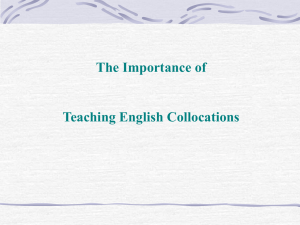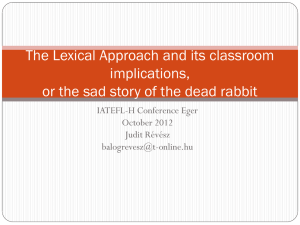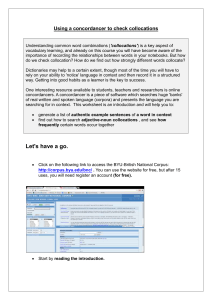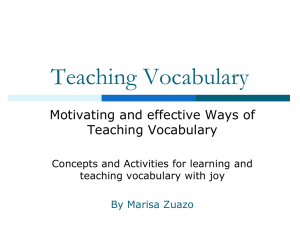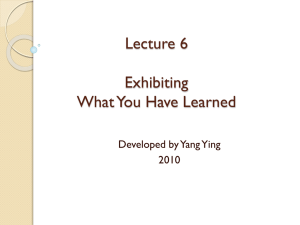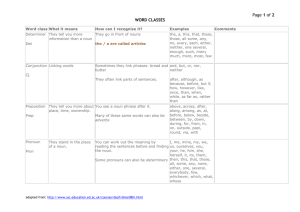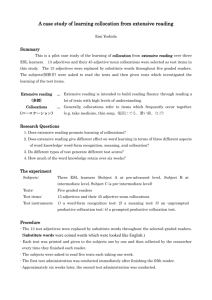Collocation in Linguistics: Definition & Examples
advertisement
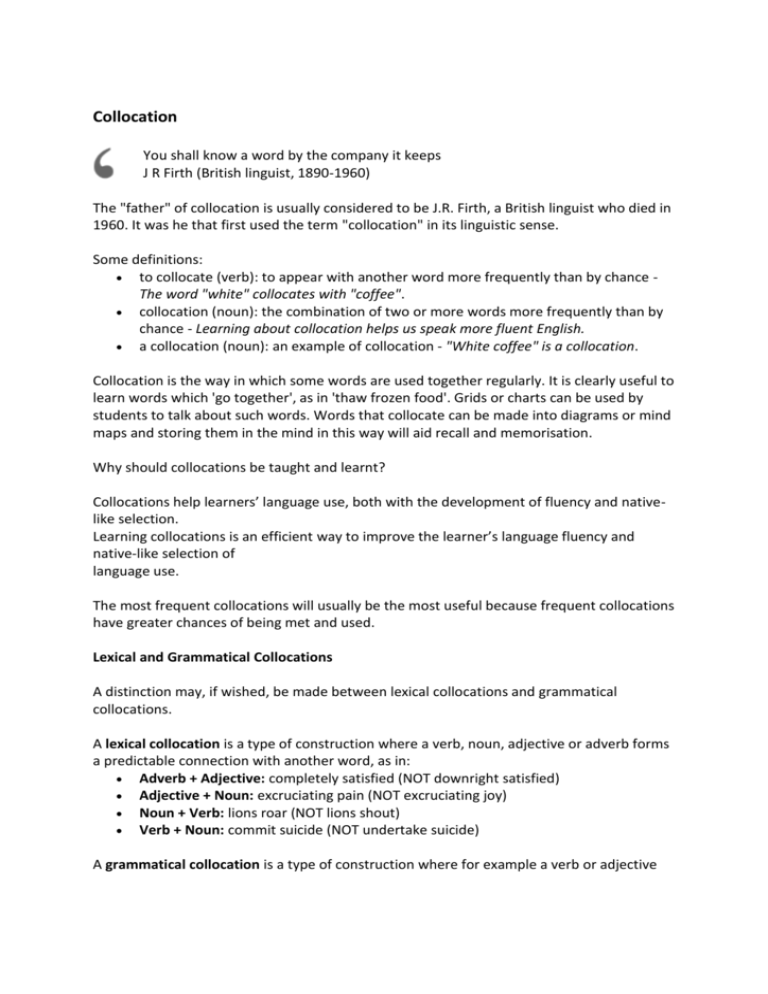
Collocation You shall know a word by the company it keeps J R Firth (British linguist, 1890-1960) The "father" of collocation is usually considered to be J.R. Firth, a British linguist who died in 1960. It was he that first used the term "collocation" in its linguistic sense. Some definitions: to collocate (verb): to appear with another word more frequently than by chance The word "white" collocates with "coffee". collocation (noun): the combination of two or more words more frequently than by chance - Learning about collocation helps us speak more fluent English. a collocation (noun): an example of collocation - "White coffee" is a collocation. Collocation is the way in which some words are used together regularly. It is clearly useful to learn words which 'go together', as in 'thaw frozen food'. Grids or charts can be used by students to talk about such words. Words that collocate can be made into diagrams or mind maps and storing them in the mind in this way will aid recall and memorisation. Why should collocations be taught and learnt? Collocations help learners’ language use, both with the development of fluency and nativelike selection. Learning collocations is an efficient way to improve the learner’s language fluency and native-like selection of language use. The most frequent collocations will usually be the most useful because frequent collocations have greater chances of being met and used. Lexical and Grammatical Collocations A distinction may, if wished, be made between lexical collocations and grammatical collocations. A lexical collocation is a type of construction where a verb, noun, adjective or adverb forms a predictable connection with another word, as in: Adverb + Adjective: completely satisfied (NOT downright satisfied) Adjective + Noun: excruciating pain (NOT excruciating joy) Noun + Verb: lions roar (NOT lions shout) Verb + Noun: commit suicide (NOT undertake suicide) A grammatical collocation is a type of construction where for example a verb or adjective must be followed by a particular preposition, or a noun must be followed by a particular form of the verb, as in: Verb + Preposition: depend on (NOT depend of) Adjective + Preposition: afraid of (NOT afraid at) Noun + Particular form of verb: strength to lift it (not strength lifting it) An extensive list of classroom activities that focus attention on collocation can be accessed at: http://www.teachingenglish.org.uk/articles/collocation-advanced-levels-2-classroomactivities Example:

